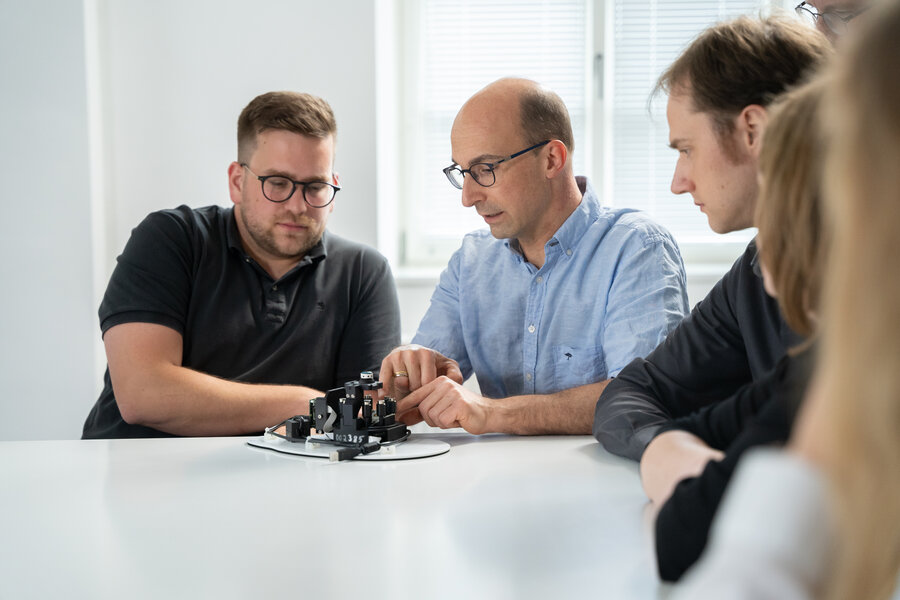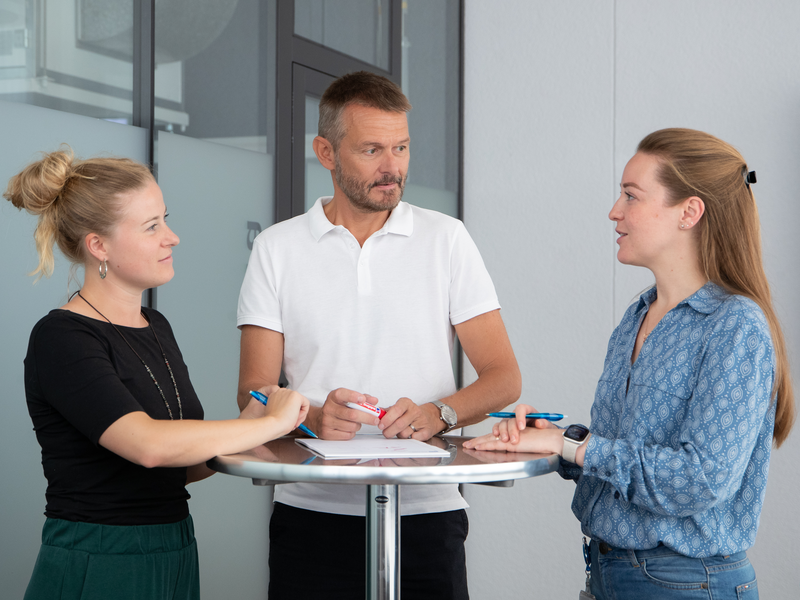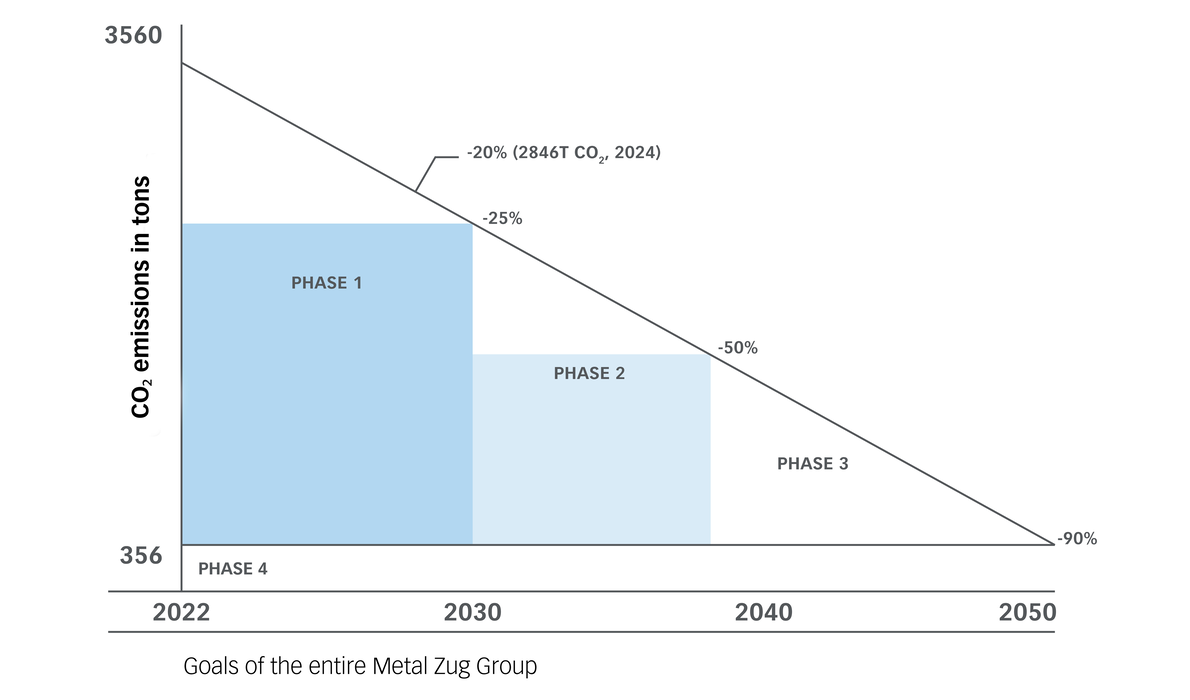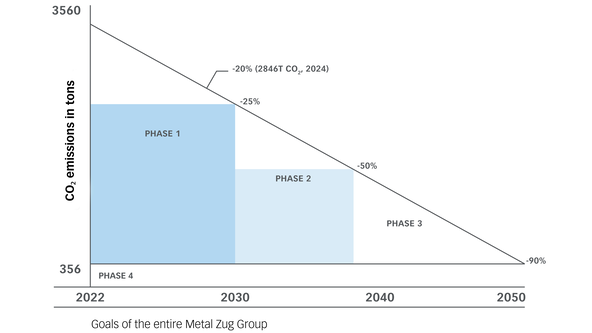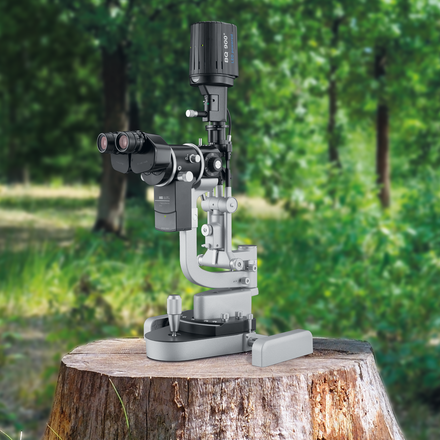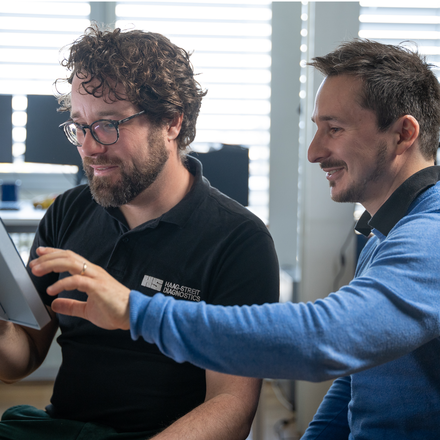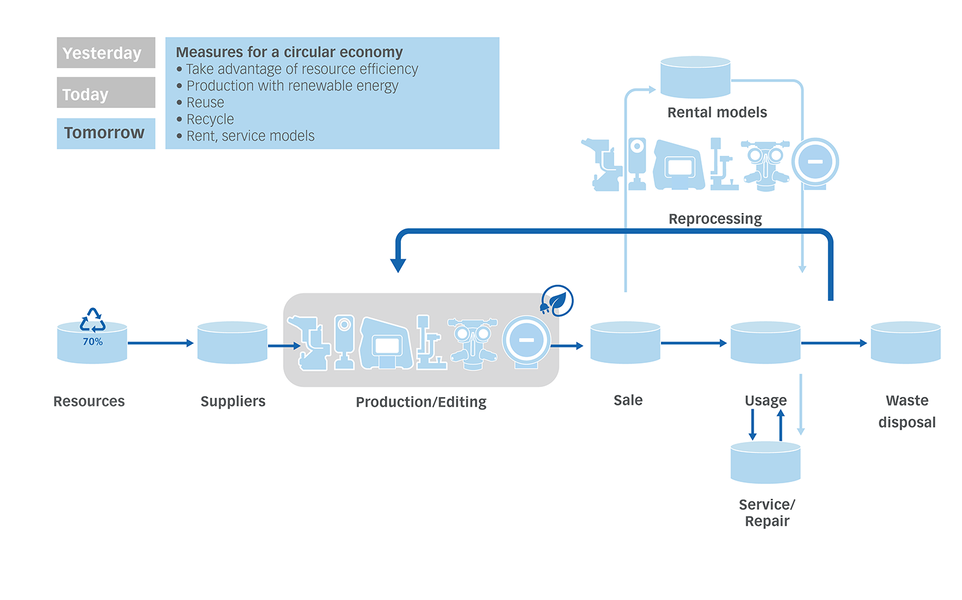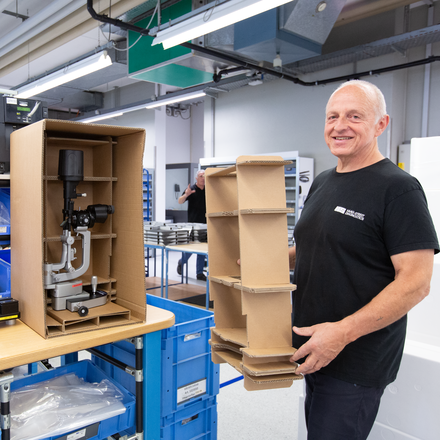
Reducing packaging
As part of the new EU directive (PPWR) for reducing packaging, we are testing more sustainable packaging solutions. The aim is to reduce the use of styrofoam significantly. Successful implementation could significantly reduce greenhouse gas emissions.
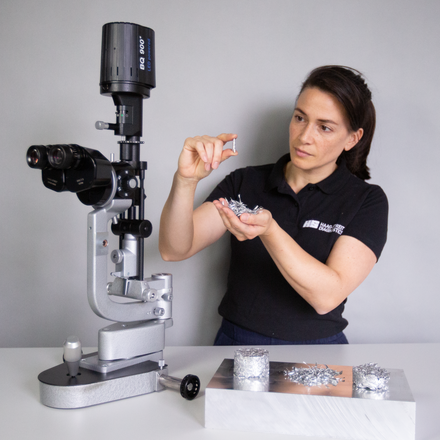
Resource efficiency
Using recycled materials enables natural resources to be saved. CO₂ emissions, waste amounts and material costs reduce. We are currently testing the use of secondary aluminum. This material is ideal for the circular economy. It can be reused time and time again without a loss of quality. Recycling requires up to 95% less energy than that required to produce primary aluminum.
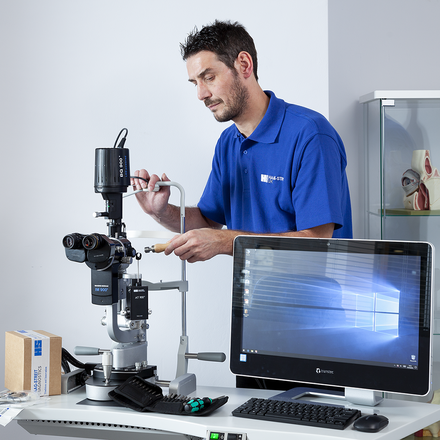
Reconditioning
Our aim is to develop return logistics for older slit lamps that are still functional. They can then be reconditioned and put on the market again or reused in the form of spare parts. Reconditioned parts and flexible rental models also give price-sensitive markets access to tried and tested Haag-Streit quality.
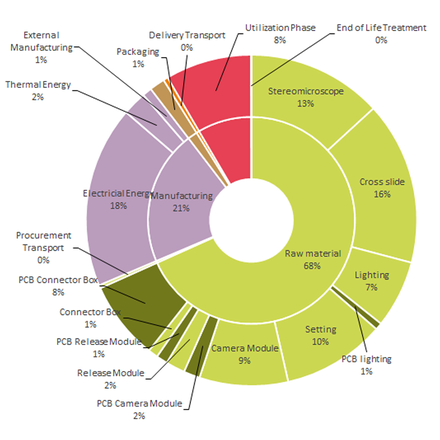
Life cycle analyses
From production to disposal. They provide the basis for well-founded decisions in design, material selection and process optimization.
